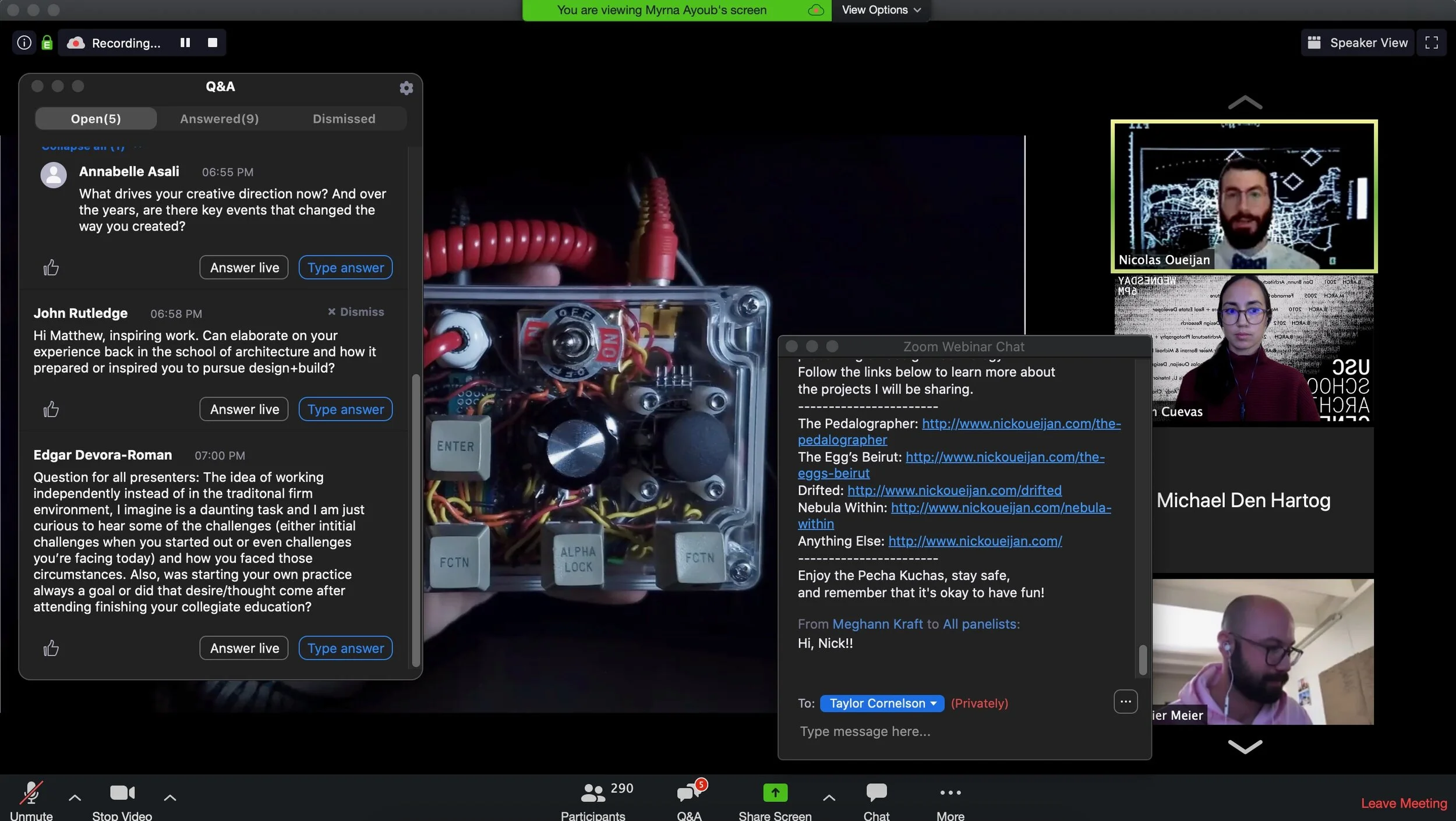TEACHING AND MENTORSHIP
Teaching and mentoring has always been very important for me. Whether it be with large groups of people or in a one-to-one setting, I’ve always found great joy and humility interacting with others in this way - there isn’t really anything else that compares. I consider myself very lucky to be in a position to share my knowledge (though truth be told, I feel as though it is often myself who emerges having gained the most out of it!), and am thankful to my peers, students, schools, conferences, mentors, and professors who have helped facilitate these experiences. This page is a record of the various roles I have had along with the classes, workshops, and lectures I have given over the years.

“The teacher who walks in the shadow of the temple, among his followers, gives not of his wisdom but rather of his faith and his lovingness. If he is indeed wise he does not bid you enter the house of his wisdom, but rather leads you to the threshold of your own mind.”
Ongoing
Previous
Summer-long mentorship program to be a guide and friend to students looking to make a difference by entering the game industry. Provide feedback and advice on the game’s development and design, and be generally blown away by the quality of the work.
Speak alongside other USC Architecture alum in a Pecha Kucha format on my work uniting design, technology, and my architectural background. Due to the COVID-19 outbreak in early 2020, this was held virtually. Recording found here.
Visit kindergarteners at Curley School and lead playful (but informative) hands-on activities which help them to engage with architecture and the design of their built environments.
Guide Harvard Graduate School of Education students through lectures, activities, and labs designed to introduce them to digital fabrication and making in the context of education. Students develop individual and group projects using techniques such as laser cutting, 3D printing, and programming with microcontrollers in order to make interactive experiences for learning.
Assist students as they develop site-specific virtually mediated physical experiences by using microcontrollers, sensors, actuators, lights, and more. Distill the ambiance of a space using technology, and re-manifest it unconventionally using these tools. Taught by Allen Sayegh.
Aided with an introduction to notable works in the field of Game Studies and with playtime in other games, students will develop and showcase physical games around the theme of “Coming of Age.” They will complete every step of the game design process from ideation to packaging, and will leave with the conceptual, theoretical, and technical skills needed to assemble a meaningful game from a larger web of systems.
Introducing the basics of working with electronics, breadboards, microcontrollers, and programming to prototype unconventional modes of interactivity.
First introduction of Unreal Engine to design students with no background in game engines. From navigating the interface, to quickly sketching interactivity with blueprints, students should leave enough understanding of Unreal workflows and concepts to develop their own projects.
As with the development of any other great technical/art project, indie game development is the process of making and executing decisions between what the creator’s ambitions are and what the creator is capable of doing. This session will consist of a lecture which highlights problems between ideation and execution and how an open-handed philosophy of rolling with the punches can mold innovative solutions from otherwise restricting problems. Leaning on my background and experience in Architecture, I will use that field’s long history to analogize how this problem-solving methodology can make projects all the better.
Leading game design exersizes (complete with physical prototypes!) with Middle School and High School students from Hawkins, Capistrano, Orange County, and Corcoron schools at IndieCade 2018.










